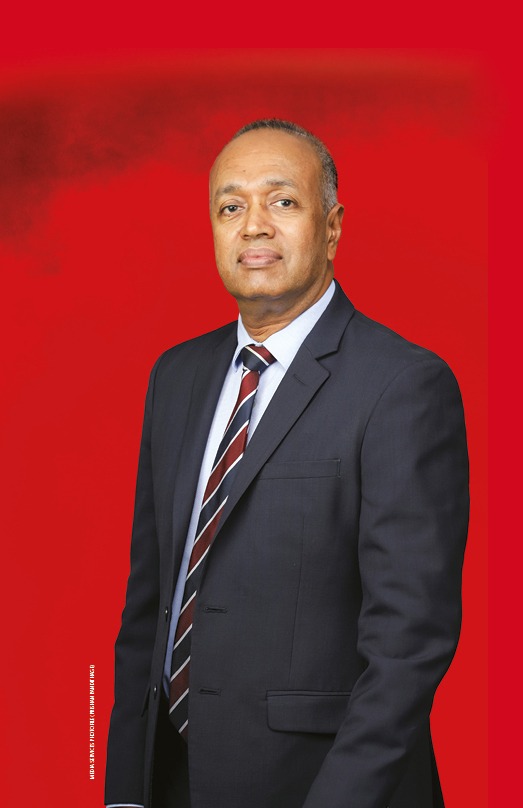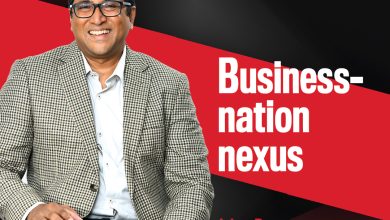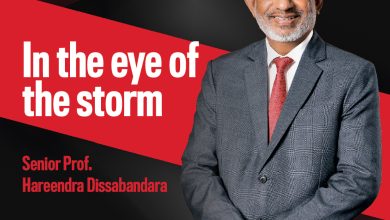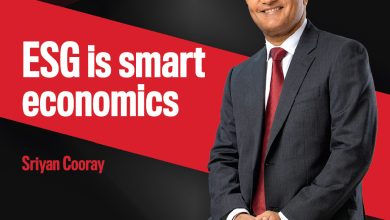EMPLOYEE WELLBEING
Wellbeing is a strategic need
Dr. Lalith Weragoda

In evolving workplaces, employee wellbeing is no longer an optional benefit; it’s an essential part of an organisation’s core strategy. In Dr. Lalith Weragoda’s opinion, wellbeing isn’t simply a human resources initiative; it’s a business principle that drives productivity, brand reputation and long-term sustainability.
He points to the strong correlation between employee wellbeing, productivity and brand image: “Modern organisations must understand that you can’t address one stakeholder’s needs by depriving another. There has to be synergy among all stakeholder categories.”
Weragoda adds that employees must feel psychologically, physically and spiritually supported to deliver their best.
And he cautions that support should not lead to a sense of dependency: “Employees must feel that they’ve earned what they receive. It shouldn’t feel like a handout – instead, it should be something they’ve contributed towards.”
HOLISTIC STRATEGY He believes that wellbeing initiatives must be holistic, inclusive and aligned with an organisation’s overall business and HR philosophy, and rejects the idea of implementing isolated activities simply to tick a checklist.
Weragoda notes: “Wellbeing strategies should reflect the identity of the organisation. For example, in financial institutions employees’ financial wellbeing should be prioritised because you can’t ensure your customers’ financial security while ignoring that of your staff.”
Different sectors must design wellbeing portfolios that are relevant to their context. “It’s not a one-size-fits-all solution and each organisation must create a tailored bundle of initiatives,” he explains.
These could include mental health access, financial counselling, flexible work options and respect for individual differences – particularly in today’s diverse and multigenerational workforce.
He continues: “Even asking for someone’s medical status could be an issue today – that’s how sensitive and thoughtful we must be.”
UNIFIED APPROACH A common misconception is that wellbeing initiatives fly in the face of performance goals. Weragoda emphasises that “in reality, they complement each other. When you support your people, address their financial pressures, protect their mental health and create a respectful workplace, their output increases and loyalty deepens.”
During the economic crisis, certain organisations took bold decisions to increase salaries. He explains: “It was a signal that these employers stood with their people and the pay rises weren’t only about compensation. The performance gains that some businesses experienced proved the wisdom of that choice.”
He adds that high performance must be recognised by using metrics that reward values, contributions and outcomes – all within a framework that supports wellbeing.
MENTAL HEALTH Weragoda is especially passionate about financial wellbeing. He adds: “One can’t expect family harmony if employees are under stress because financial wellbeing is foundational.”
What’s more, he points out that since younger generations prioritise varying needs such as choosing cars over homes, organisations must adapt their benefits and literacy programmes accordingly. “They should help them manage their earnings wisely through financial literacy, planning tools and incentives that promote savings and stability,” Weragoda maintains.
Alongside financial security, psychological wellbeing must also be addressed. He calls on organisations to offer access to professional counsellors, in-house medical support and trained staff to provide mental health assistance.
“Given the disruptions of social media and modern stressors, psychological wellbeing is now as critical as financial security,” he says.
RETENTION TOOL As Sri Lanka continues to face economic headwinds and brain drain, Weragoda believes that employee wellbeing is a powerful retention tool. He avers: “Even if we can’t match international salaries, employees stay when they know their organisation is doing its best for them within the current context.”
Retention, in his view, hinges on transparent communication and trust: “If people know they’re receiving the best possible support, they will choose to stay even when they’re tempted by opportunities overseas.”
For Weragoda, the message is clear – employee wellbeing is a strategic necessity rather than a luxury. He says: “Respect and performance aren’t mutually exclusive. When it is properly managed, wellbeing drives productivity, loyalty and a reputation that defines great organisations.”





